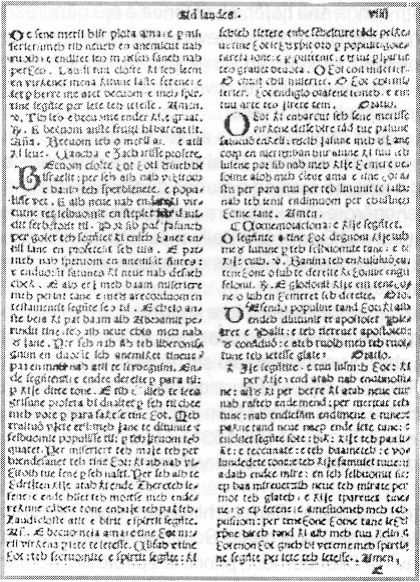
Gjon Buzuku (16th century) was an Albanian Catholic clergyman who wrote the first known printed book in Albanian.Gjon Buzuku was born in the village of Ljare (Kraja) in Bar, Montenegro close to Northern Albania (Krajë is located on the shores of Lake Scutari). He probably lived in or near Venice. There are claims that he was the bishop of two dioceses in north Albania or that he was a monk.From March 20, 1554 to January 5, 1555 he wrote a translation of the Catholic missal into the Gheg dialect of Albanian. He published it as a book of 188 pages. The Apostolic Library in the Vatican holds the only known copy of the book. It is missing the frontispiece and the first 16 pages, which explains why the title and year of publication of the work are not known.The book was discovered in 1740 by Gjon Nikollë Kazazi, the Albanian archbishop of Skopje. In other libraries there are three photocopies from the original, one of them in Tirana. In 1996, the librarians were not able to locate the book, which had been used in 1984 for the last time. Eqrem Çabej wrote a monograph on the book in 1968.The place the book was printed is thought to be either Venice or Shkodër.The book contains the liturgies of the main holidays. There are also texts of prayers and rituals and catechetical texts. Every page contains two columns. The initials are decorated. The grammar and the vocabulary are more archaic than in the Gheg text from the 17th century. The text is very valuable from the viewpoint of the history of language. The vocabulary is quite rich. The archaic text is easily read due to the circumstance that it is mainly a translation of known texts, in particular the Bible. Most of the Gospels of Matthew, Luke and John were translated in the book. It also contains passages from the Psalms, the Book of Isaiah, the Book of Jeremiah, the Letters to the Corinthians, and many illustrations.The orthography is peculiar. The Latin alphabet with some additional letters is used. The consequent character of orthography and grammar seems to indicate an earlier tradition of writing.In Albanian, the book is known as Meshari (The Missal). All we know about the author is from the book's colophon written by Buzuku himself in Albanian. Language used is a pre-runner to the Official Gheg Albanian Language. However, it is clear that the dialect of Malësia e Madhe (The Great Highland) was used. Even today one can hear words and expressions from Malësia older people that sound as if jumping from the pages of the missal.
COLOPHON TO THE SO-CALLED ‘MISSALE’
The first book in Albanian
(1555)
I, Don John, son of Benedict Buzuku, having often considered that our language had in it nothing intelligible from the Holy Scriptures, wished for the sake of our people to attempt, as far as I was able, to enlighten the minds of those who understand, so that they may comprehend how great and powerful and forgiving our Lord is to those who love him with all their hearts. I beg of you from today on to go to church more often to hear the word of God. If you do this, may our Lord have mercy upon you. Those who have suffered up to now shall suffer no longer. May you be the elect of our Lord. He will be with you at all times if you pursue righteousness and avoid iniquity. By so doing, the Lord shall give you increase, for your harvest shall last until the vintage and the vintage shall last until the time of sowing. I, moreover, wish to finish my work if it please God. I began it in the year 1554 on the 20th day of March and finished it in the year 1555 on the 5th day of January. If perchance mistakes have been made in any part, I pray and beg of those who are more learned than I to correct them. For I should not be surprised if I have made mistakes, this being the very first work, great and difficult to render into our language. Those who printed it had great difficulty and thus could not fail to make mistakes, for I was not able to be with them all the time. Running a church, I had to serve in two places. And now I beg of you all to pray to the Lord on my behalf.




No comments:
Post a Comment